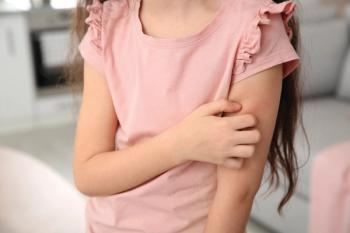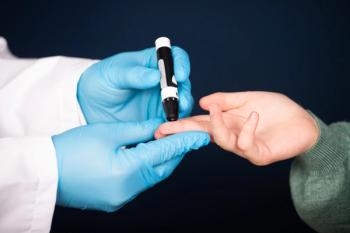
Health care providers must not only address the physical symptoms of patients with skin disorders but also the psychological fallout frequently associated with these diseases.

Health care providers must not only address the physical symptoms of patients with skin disorders but also the psychological fallout frequently associated with these diseases.

As more states legalize marijuana for recreational purposes, pediatric health care providers need to know how to educate and discuss the drug with families.

Patients who are highly competitive in sports sometimes drastically restrict food intake in an attempt to outperform their peers.

A recent study looked at how patients with type 1 diabetes used telehealth during the pandemic, and how it has influenced their preferred method of health care.

Part of the risk of developing kidney involvement begins when type 1 diabetes mellitus (T1DM) sets in and establishes itself in the patient, with up to 65% of children experiencing acute kidney injury during T1DM onset, which can further predispose to the development of future chronic kidney disease.

Pediatric health care providers, as well as teachers, coaches, and parents, must be closely involved in the healthy development of these athletes.

A better understanding of this atopic diathesis and the atopic march often seen in pediatric patients is necessary to optimally treat and manage the patient population, ideally in a multidisciplinary setting.

A recent study showed that patients with atopic dermatitis have a higher prevalence of infertility, highlighting the need for clinicians to be wary of this increased risk and improve the care and management of this patient population.

Specific genetic variations could be key in identifying acne risk far before the signs arise.

Recent data has revealed the live attenuated influenza vaccine (LAIV), also known as the “nasal spray” vaccine, to be grossly ineffective, leading to the ACIP’s decision not to recommend its usage. As such, healthcare providers must be judicious in their choice of influenza vaccine with their patients.

Maintaining the currently recommended vaccination schedule of influenza, pneumococcal conjugate, and diphtheria/tetanus/acellular pertussis vaccines in young children as put forth by the Centers for Disease Control and Prevention is likely the best way to manage immunization in this patient population despite the slightly increased risk for febrile seizure.

Although still underused among available diagnostic procedures, nasal cytology is viewed by many specialists as an indispensable adjunctive diagnostic exam that clinicians can and should use more often to optimally diagnose, treat, and manage the myriad of nasal disorders and diseases occurring in pediatric patients.

New research suggests that the use of small-particle inhaled corticosteroids as a first-line or step-up therapy for uncontrollable asthma in children would be more helpful in clearing symptoms and preventing exacerbations than traditional treatment approaches such as large-particle inhaled corticosteroids with or without the addition of long-acting beta 2 agonists.

The currently recommended childhood immunization schedule put forth by the Centers for Disease Control and Prevention (CDC) is designed to protect infants and young children from 14 harmful and potentially deadly diseases before a child’s second birthday.

Women who receive the prophylactic bivalent human papilloma virus (HPV) vaccine within 90 days of pregnancy are not at an increased risk for miscarriage, underscoring the safety of the vaccine. The proven safety of the bivalent HPV vaccine should quell the concerns of women and their health care practitioners.

The CDC now recommends that high-risk infants undergo postvaccination serologic testing between 9 and 12 months, updated from 9-18 months. The new vaccination interval can better cover at risk infants from HBV infection and also help ensure a higher adherence to the immunoprophylaxis protocol.

Published: May 10th 2023 | Updated:

Published: June 15th 2022 | Updated:

Published: March 14th 2022 | Updated:

Published: June 12th 2023 | Updated:

Published: September 20th 2016 | Updated:

Published: July 26th 2016 | Updated: